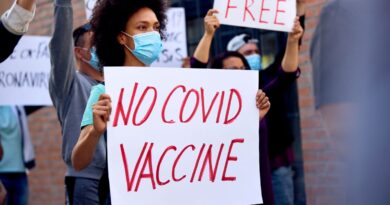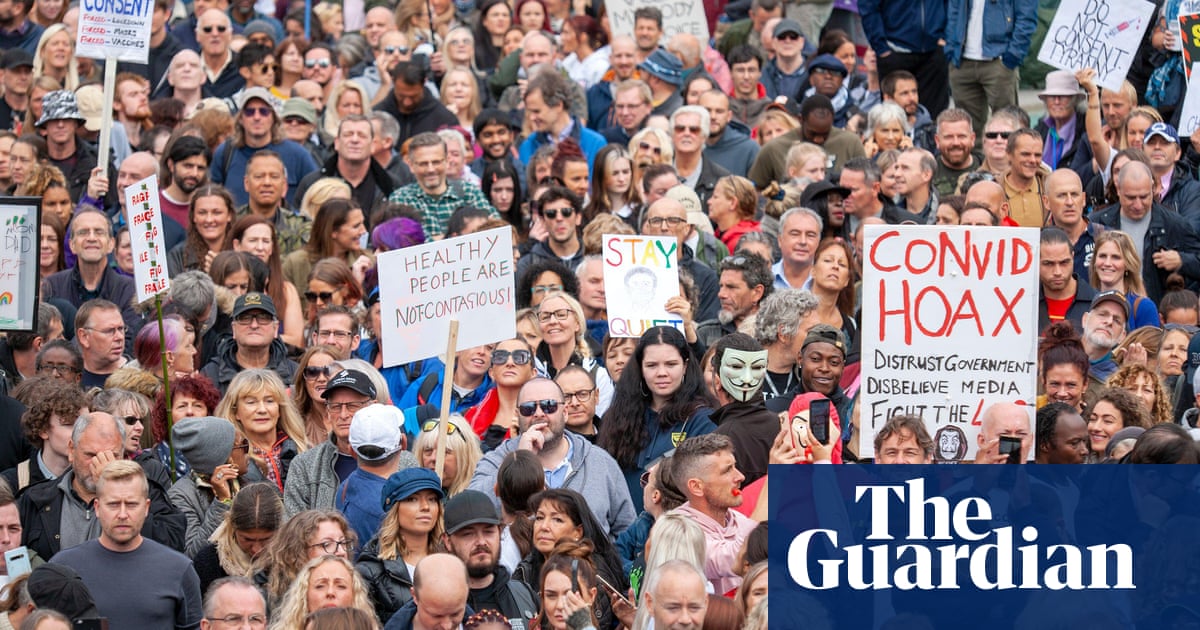Covid Ravaged South America. Then Came a Sharp Drop in Infections.

RIO DE JANEIRO — Just a few weeks ago, Covid-19 was spreading with alarming ease across a cluster of nations in South America, overwhelming hospital systems and killing thousands of people daily.
Suddenly, the region that had been the epicenter of the pandemic is breathing a sigh of relief.
New infections have fallen sharply in nearly every nation in South America as vaccination rates have ramped up. The reprieve has been so sharp and fast, even as the Delta variant wreaks havoc elsewhere in the world, that experts can’t quite explain it.
Brazil, Argentina, Chile, Peru, Colombia, Uruguay and Paraguay experienced dramatic surges of cases in the first months of the year, just as vaccines started to arrive in the region. Containment measures were uneven and largely lax because governments were desperate to jump-start languishing economies.
“Now the situation has cooled across South America,” said Carla Domingues, an epidemiologist who ran Brazil’s immunization program until 2019. “It’s a phenomenon we don’t know how to explain.”
There have been no new sweeping or large-scale containment measures in the region, although some countries have imposed strict border controls. A major factor in the recent drop in cases, experts say, is the speed with which the region ultimately managed to vaccinate people. Governments in South America have generally not faced the kind of apathy, politicization and conspiracy theories around vaccines that left much of the United States vulnerable to the highly contagious Delta variant.
In Brazil, which had a slow, chaotic vaccine rollout, nearly 64 percent of the population has received at least one dose of a vaccine, a rate that exceeds that of the United States. That led President Jair Bolsonaro, who had initially sowed doubts about vaccines, to brag last month.
“Brazil has one of the best performances on vaccination globally,” he said in a Twitter post.
In Chile and Uruguay, more than 70 percent of the population has been fully vaccinated.
As cases have dropped, schools in much of the region have resumed in-person classes. Airports are becoming busier as more people have started traveling for work and leisure.
The drop in caseloads led the United Nations this past week to provide a more optimistic projection of economic growth in the region. It now expects economies in Latin America and the Caribbean to grow by 5.9 percent this year, a slight increase from its 5.2 estimate in July.
Sept. 4, 2021, 3:55 p.m. ET
“We’ve managed to delay major circulation of the Delta variant and move forward with the biggest vaccination campaign in our history,” Carla Vizzotti, Argentina’s health minister, said last week.
In Argentina, more than 61 percent of the population has received at least one dose of a vaccine.
Chrystina Barros, a health care expert at the Federal University of Rio de Janeiro, said she worries that falling caseloads will lead people to become complacent about wearing masks and avoiding crowds while the epidemic remains a threat.
“There is a serious risk of putting the very effectiveness of the vaccine at risk,” she said. “The cooling of the pandemic cannot inspire people to relax in relation to the crisis.”
Jairo Méndez Rico, a viral diseases expert advising the World Health Organization, said the Delta variant may have been slow to gain traction in South America because so many people in the region have natural immunity from having had the virus. But he said the variant could still lead to new surges.
Understand Vaccine and Mask Mandates in the U.S.
-
- Vaccine rules. On Aug. 23, the Food and Drug Administration granted full approval to Pfizer-BioNTech’s coronavirus vaccine for people 16 and up, paving the way for an increase in mandates in both the public and private sectors. Private companies have been increasingly mandating vaccines for employees. Such mandates are legally allowed and have been upheld in court challenges.
- Mask rules. The Centers for Disease Control and Prevention in July recommended that all Americans, regardless of vaccination status, wear masks in indoor public places within areas experiencing outbreaks, a reversal of the guidance it offered in May. See where the C.D.C. guidance would apply, and where states have instituted their own mask policies. The battle over masks has become contentious in some states, with some local leaders defying state bans.
- College and universities. More than 400 colleges and universities are requiring students to be vaccinated against Covid-19. Almost all are in states that voted for President Biden.
- Schools. Both California and New York City have introduced vaccine mandates for education staff. A survey released in August found that many American parents of school-age children are opposed to mandated vaccines for students, but were more supportive of mask mandates for students, teachers and staff members who do not have their shots.
- Hospitals and medical centers. Many hospitals and major health systems are requiring employees to get a Covid-19 vaccine, citing rising caseloads fueled by the Delta variant and stubbornly low vaccination rates in their communities, even within their work force.
- New York City. Proof of vaccination is required of workers and customers for indoor dining, gyms, performances and other indoor situations, although enforcement does not begin until Sept. 13. Teachers and other education workers in the city’s vast school system will need to have at least one vaccine dose by Sept. 27, without the option of weekly testing. City hospital workers must also get a vaccine or be subjected to weekly testing. Similar rules are in place for New York State employees.
- At the federal level. The Pentagon announced that it would seek to make coronavirus vaccinations mandatory for the country’s 1.3 million active-duty troops “no later” than the middle of September. President Biden announced that all civilian federal employees would have to be vaccinated against the coronavirus or submit to regular testing, social distancing, mask requirements and restrictions on most travel.
“It’s not easy to explain,” he said. “It’s too early to say what is happening.”
Despite the uncertainty, governments in South America are moving to reopen borders in coming months. President Alberto Fernández of Argentina said in late July that the path to normalcy was in sight.
“We deserve another life, a life in which we enjoy music, painting, sculptures, movies, theater,” he said. “A life in which we can laugh without a face mask, where we can hug those we love.”
Jennifer Mac Donnell, a cosmetologist in Buenos Aires, is days away from a mid-September wedding — a milestone that has felt uncertain for much of the year.
“We feared we were going to be forced to cancel it,” the 39-year-old said. “Now we’re much more calm, cases are down, most of our friends are vaccinated and everyone is just focused on having a good time.”
Daniel Politi reported from Buenos Aires, and Flávia Milhorance from Rio de Janeiro.
*** This article has been archived for your research. The original version from The New York Times can be found here ***


